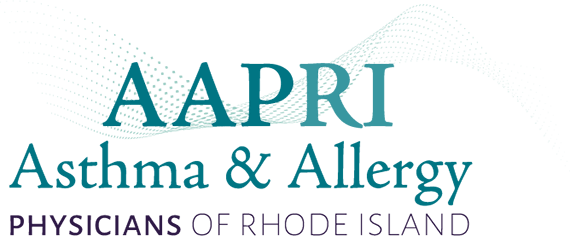In order to protect the health and safety of our patients and staff during the COVID-19 pandemic, our practice has suspended in-person patient visits for the month of April. We will be calling those patients who have appointments during that time to reschedule.
During this time, your medical needs will continue to be our priority.
As always, if you have a medical emergency, please call 9-1-1 or visit your nearest emergency room.
If you have a medical concern relating to your asthma or allergy treatment, you may call us at 401-751-1235 between 10 a.m. and 2 p.m., Monday-Friday. We will send a message to your provider, who will call you back as soon as they are able. We can also explore scheduling a telemedicine visit at that time.
If you have a prescription request or other non-emergency questions, please reach our office through the patient portal.
In the meantime, please continue following the guidelines issued by Center for Disease Control and the Rhode Island Department of Health.
The CDC recommends taking the following precautions:
- Avoid close contact with people who are sick/if you are sick.
- Stay home when you are sick.
- Cover your mouth and nose.
- Wash your hands often with soap and water for at least 20 seconds, especially after you have been in a public place.
- Avoid touching your eyes, nose or mouth with unwashed hands.
- Wear a facemask if you are sick, especially before entering a healthcare provider’s office or around others.
- Clean and disinfect frequently touched surfaces daily.
- Practice other good health habits, such as getting plenty of sleep, keeping physically active, managing stress, drinking plenty of flings and eating nutritious food.
Even if your asthma is mild or your symptoms are well-controlled by medication, you are at a higher risk of developing serious complications from respiratory illnesses such as influenza or coronavirus. Please read the following CDC recommendations:
- Take asthma medication exactly as your doctor or other medical professional directs you.
- Know how to use your asthma inhaler if your doctor or other medical professional has prescribed one for you.
- Know and avoid the asthma triggers that can cause you to have an asthma attack.
- Follow an updated, written Asthma Action Plan developed with your doctor.
- If your child has asthma, make sure their up-to-date written Asthma Action Plan is on file at school or at the daycare center. Be sure that the plan and medication(s) are easy to access to when needed.
Because you are at high risk, if you get sick with flu symptoms — fatigue, aching, fever or chills — call your general practitioner right away.
Additionally, it isn’t too late to get your flu shot. It will not protect you from coronavirus, but it will help protect from the flu, which has been widespread this season.
The CDC also has recommendations on how to prevent the spread of illness at work and at school, and provides detailed resources for business owners and school administrators. We encourage you to follow these practices and stay safe and healthy this season.

